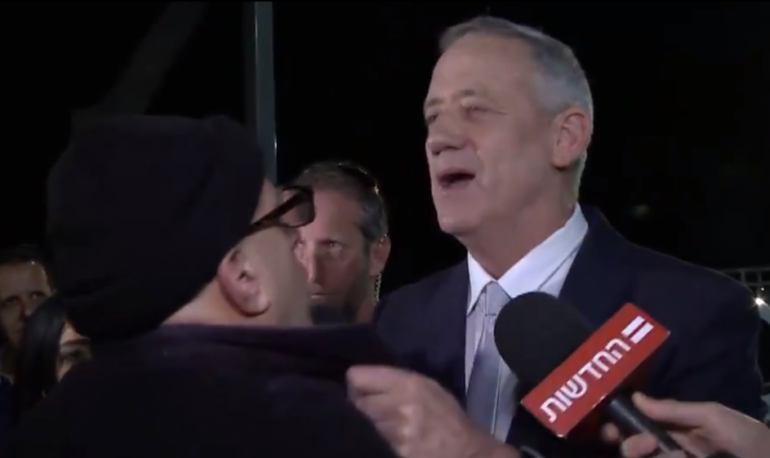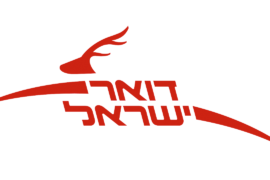Activist Elie Yosef spent Wednesday night in the pouring rain protesting outside the home of Blue & White party leader Benny Gantz because he believes selling weapons to human rights abusers betrays the Jewish values the State of Israel is meant to express.
Gantz, a former IDF chief of staff rumored to have been involved in arms sales to South Sudan – where roughly 400,000 people are estimated to have been killed since December 2013 – had agreed on camera to a meeting with Yosef over the issue but has yet to make himself available.
The two met for the first time last Thursday evening as Gantz was leaving the site of a speech in which he dramatically announced his political union with Yair Lapid and fellow former IDF heads Gabi Ashkenazi and Moshe Yaalon.
As the candidates left the building, they were confronted by Yosef, who challenged Gantz on his role in selling weapons to South Sudan and implored the Blue & White party to commit that Israel not sell weapons to human rights violators.
Footage released by Kan News shows Gantz grabbing Yosef by his jacket collar and speaking to him in a patronizing manner before dismissively agreeing to schedule a meeting with the activist to discuss the issue.
Yosef is then seen telling Gantz that “350,000 were killed in South Sudan” before falling to the ground. The footage shows Gantz moving his arm in the direction of the activist, leading many viewers to assume that either he or one of his bodyguards had struck the activist.
Gantz’s office released a statement on Sunday denying that he shoved the elderly Yosef, stating that it “regretted that some media outlets have chosen to join the fake news reports” distributed by people who oppose Gantz’s candidacy.
Yosef shared his version of the story in a social media post.
“He’s much taller than me and he grabbed me by my collar in a very arrogant manner,” the activist wrote.
“He was speaking quietly but as a superior, telling me, ‘We want only good for you.’ I protested against the assistance he gave to South Sudan and his meeting with the head of South Sudan, where 350,000 people were killed. We’ll see if he really agrees to meet with me. This is an issue that concerns all Israelis – right, left, religious and ḥaredim – because we are all partners in war crimes.”
While much of Israeli society and the broader Jewish world has expressed understandable concern over the likely inclusion of the kahanist Otzma Yehudit party in the next Knesset, highlighting how kahanist ideology threatens the moral fabric of the Jewish state, these same Israelis and Diaspora Jews have been silent on the issue of arms sales to conflict zones.
As problematic as kahanists might be, they do little more than make noise. At least for the moment.
Selling weapons to war criminals, on the other hand, actually carries a very real human cost in the present and corrupts Israeli society on a far deeper level than a few violent hooligans shouting offensive slogans from the opposition. In fact, even the kahanists themselves seem to understand that selling arms to human rights abusers betrays the values a Jewish state should represent.
The sad irony is that so many of the voices condemning the inclusion of Otzma Yehudit in Israel’s political system actually support Gantz and his Blue & White party, making it clear that Israeli society requires a deeper conversation about the values a Jewish state is meant to express.





